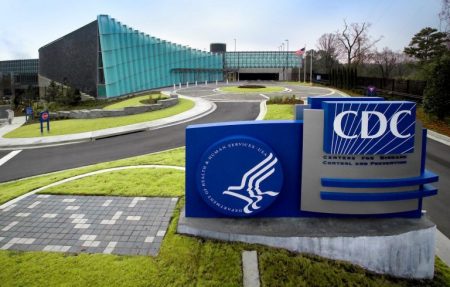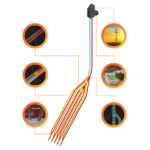October 27, 2017 – A number of years ago I worked on the design of a database for managing patient cases at a hospital here in Toronto. The focus was on interventional radiology, a burgeoning field that was proving to be a replacement for more invasive surgical procedures, using devices and tools that could be threaded through veins and arteries to body organs needing repair. The database not only served as a patient repository, but also as a way for the radiology team to track procedure costs, patient outcomes, and inventory. At the time I was invited to participate in a meeting of physicians impaneled by the Ontario government to look at creating a portable electronic health record that could be universally made available to both patients and physicians. The Ontario government threw lots of money and time at the project but nothing came of it at the time. That’s why when I saw the announcement from IBM Watson Health and the U.S. Centers for Disease Control and Prevention (CDC) and the plan to explore the use of blockchain technology in healthcare, I was immediately intrigued.
I have written about blockchain in past entries here at 21stcentech.com. This technology, first created to manage Bitcoin cryptocurrency transactions, has been seen by many to be the answer to creating secure and scalable data recordkeeping that can be shared through the Internet among interested parties. From banking transactions to electronic voting, from digital signatures to managing carbon currency, blockchain is touted as a potential data management panacea.
Back in February, I wrote that blockchain applied to secure patient records could contain a full medical history including treatments, visual records, attending physicians, and health insurance providers. And now it seems that the CDC and IBM’s Watson Health Division are planning what Shahram Ebadollahi, IBM’s Chief Science Officer, calls “exploring owner-mediated data exchange.” Ebadollahi further states, “blockchain is very useful when there are so many actors in the system…it enables the ecosystem of data in healthcare to have more fluidity.”
What does all that mean?
Through the use of blockchain, a patient will own his or her data and will be able to share it with healthcare providers who will continuously contribute to the data through a secured access. Blockchain will become the general repository containing all entries in all the various forms. The data, although it will exist on multiple servers and in multiple localities, will be accessible through the Internet with full security in place to ensure patient privacy is maintained. The patient will have access to the entire record. Others with access will have limits on what they can see but will be able to post new patient data in the form of reports, images, laboratory results, etc. For healthcare, it means a patient’s medical team will no longer be just physicians, nurses, and other healthcare providers, but also will include data scientists and artificial intelligence (AI) tools.
In the agreement between CDC and IBM, it is with the latter’s Watson Health Division. Watson’s AI, the all-time Jeopardy champion against the best human opponents, is a technology that can process vast amounts of data and see discernible patterns humans might not. Today the technology is being used in healthcare to study images, accounting for 90% or more of the data generated by the field. The results are already proving revolutionary.
Watson’s ability to analyze and cross-reference images to the rest of the patient record including laboratory test results and histories is uncovering patterns not picked up easily by human physicians. And Watson’s ability to read and process the latest published advances in medicine at the astonishing rate of 25 million papers per week, allows it to correlate what it learns to what physicians are dealing with in patients. This is invaluable second sight which is making an enormous impact on cancer early detection and treatment to name just one area of study where Watson is being applied.
With the combination of these two technologies, blockchain and AI, Ebadollahi predicts healthcare delivery will change forever. He states, “When a bunch of physicists collaborated and created this thing called the World Wide Web a few decades ago, nobody imagined Facebook and Google and Amazon……With blockchain, we can collect data and extract insights through AI, and the future will have an economy around that we can hardly even imagine right now.”
For the CDC it is not just looking at blockchain for “owner-mediated data exchange,” but also is working with it to gather critical data during pandemics and localized disease outbreaks. Along with its sister departments in the U.S. government, Health and Human Services and the Food and Drug Administration, the CDC is testing blockchain for data collection and analysis in clinical trials, as well as for medical administration data management.
















